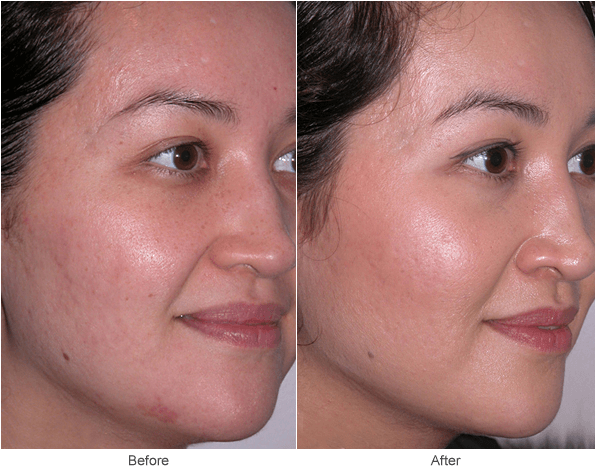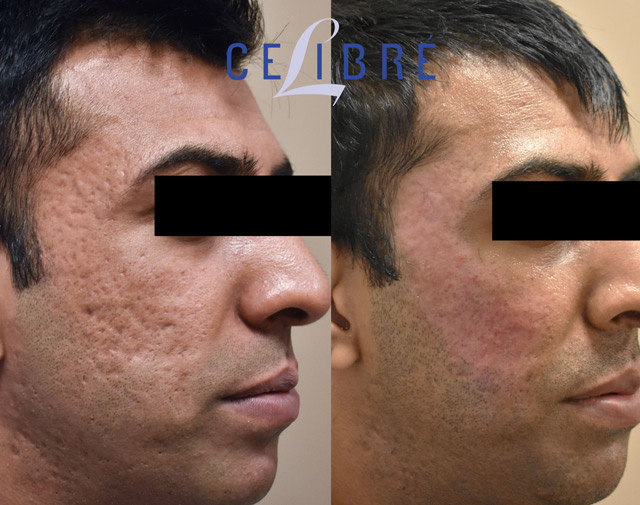Acne and Acne Scars Treatment: Specialist Solutions for Lasting Outcomes
Acne and Acne Scars Treatment: Specialist Solutions for Lasting Outcomes
Blog Article
Recognizing the Various Skin Problem and Efficient Therapy Choices for Acne Marks
Acne marks represent an intricate interplay of skin disease that dramatically effect people' self-esteem and overall skin health and wellness. Understanding the unique sorts of acne scars-- hypertrophic and atrophic-- together with their underlying reasons, is critical for establishing effective treatment strategies. Different healing options exist, ranging from innovative dermatological treatments to all-natural remedies. Nevertheless, the efficiency of these therapies commonly pivots on customized analyses by certified professionals. As we discover the landscape of acne scar administration, it comes to be noticeable that the trip towards more clear skin may entail more than just topical remedies.
Sorts Of Acne Marks

On the other hand, hypertrophic scars arise from an overflow of collagen during the healing process, bring about raised areas on the skin. These marks are typically firm and can vary in shade, often showing up red or darker than the surrounding skin.
Comprehending these kinds of acne scars is vital for establishing a reliable therapy strategy - acne treatment for sensitive skin. Choices may consist of chemical peels, laser therapy, microneedling, or facial fillers, customized to the specific mark type. A thorough appointment with a dermatologist can assist establish the most ideal intervention, thinking about the individual's skin type, scar intensity, and total skin health
Root Causes Of Acne Scarring
Marking occurs as a result of the body's natural healing reaction to inflammation and injury triggered by acne lesions. When acne forms, it triggers an inflammatory feedback, leading to the release of numerous cytokines and development factors that promote healing. This process can sometimes lead to excessive cells formation or inadequate repair, resulting in scars.
The key reasons of acne scarring consist of the extent of the acne itself, period of the lesions, and individual skin types. Extreme inflammatory acne, such as blemishes and cysts, is a lot more likely to result in scarring due to much deeper cells damage. Additionally, inappropriate handling of acne sores, such as selecting or pressing, can aggravate tissue injury and swelling, raising the chance of scarring.
Hereditary proneness also plays a considerable role; individuals with a family background of scarring are at a higher danger. Furthermore, skin kind and shade can influence mark development, as darker complexion might experience post-inflammatory hyperpigmentation, while lighter skin might develop atrophic marks.
Eventually, understanding these reasons is necessary in taking care of acne and reducing the potential for scarring.

Therapy Alternatives for Scarring
Efficient therapy choices for acne scarring vary relying on the kind and seriousness of the scars. Generally classified into atrophic, hypertrophic, and keloid scars, these problems need customized strategies for optimum results.
For atrophic scars, which are identified by a loss of tissue, therapies such as chemical peels, microdermabrasion, and laser treatment are commonly used. These techniques advertise skin revival and boost collagen manufacturing, consequently boosting skin texture. Subcision, a minimally invasive treatment, can also work by breaking up coarse bands underneath the skin.
Hypertrophic and keloid scars can be a lot more challenging to deal with. Options consist of corticosteroid injections to lower inflammation and squash the scars. Sometimes, cryotherapy or laser treatment may be recommended to lessen their appearance.
Surgical choices are available see it here for serious scarring, where excision or skin grafting might be needed. It's essential for people to consult with a dermatologist to examine their certain visit our website mark type and go over one of the most appropriate therapy plan. Combining multiple therapies usually yields the most effective end results, ensuring that each patient's one-of-a-kind skin condition is attended to properly.
Natural Home Remedy and All-natural Solutions
All-natural remedies and natural remedy can offer an accessible technique for individuals looking for to enhance the appearance of acne scars (acne scars). Numerous active ingredients located in the home kitchen have demonstrated potential benefits in improving skin structure and advertising recovery

Another effective choice is lemon juice, which serves as a natural exfoliant and can lighten hyperpigmentation. However, it ought to be used very carefully, as it may cause photosensitivity. Oat meal masks are likewise useful; their gentle peeling can aid get rid of dead skin cells while soothing irritability.
Necessary oils, such as tea tree oil and lavender oil, can even more support scar healing due to their antimicrobial buildings. It is critical to execute a spot examination before applying any type of treatment to guarantee there are no adverse responses. These natural remedies can be a complementary strategy in the journey to diminish acne scars.
Stopping Future Scarring
Adopting an aggressive approach to skin care can dramatically lower the threat of establishing future acne marks. Regular cleansing, exfoliation, and look at this site hydration can assist keep skin wellness and protect against clogged up pores.
In addition, staying clear of the temptation to squeeze or choose acne lesions is vital, as this can result in inflammation and succeeding scarring. Rather, individuals must focus on using topical therapies that advertise recovery and decrease inflammation. Active ingredients such as salicylic acid, benzoyl peroxide, and retinoids are recognized for their effectiveness in taking care of acne and decreasing marks.
Sun defense is an additional crucial component; exposure to UV rays can darken marks and hamper healing. Making use of a broad-spectrum sun block daily can minimize these effects.
Finally, preserving a healthy and balanced diet regimen abundant in anti-oxidants and staying hydrated supports skin regrowth. By implementing these safety nets, individuals can dramatically reduce their threat of future scarring and promote general skin health and wellness.
Conclusion
In final thought, a thorough understanding of acne scars, encompassing both hypertrophic and atrophic kinds, is important for reliable therapy approaches. Assessment with a skin specialist stays critical to devise individualized techniques that take into consideration specific skin kinds and mark intensity, eventually boosting the efficiency of mark administration methods.
Acne scars represent a complicated interplay of skin conditions that significantly influence people' self-worth and general skin wellness. The 2 key classifications of acne scars are atrophic and hypertrophic scars. These marks are further categorized right into three subtypes: ice pick marks, which are deep and slim; boxcar scars, which are larger and have well-defined sides; and rolling marks, which produce a wave-like appearance due to irregular skin appearance.
A thorough consultation with a skin doctor can aid figure out the most suitable intervention, taking right into account the person's skin type, mark extent, and general skin health.
Consultation with a dermatologist continues to be necessary to create customized strategies that take into consideration private skin types and mark seriousness, inevitably improving the efficacy of mark management techniques.
Report this page